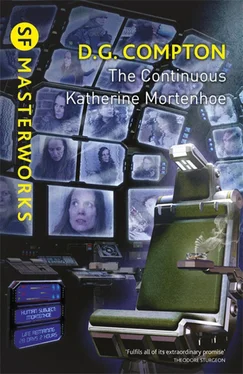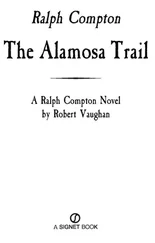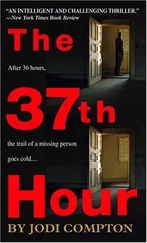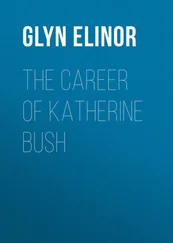Of course they came quite quickly when I pounded on the door. They were nice to me. When I told them of this terrible darkness phobia I had (dating from my childhood, Roddie Two’s childhood), they turned the lights back on again. They weren’t monsters. It wasn’t as if I were a criminal — I’d done them all a favor, really. To calm me, they brought me news. The woman I’d thought I’d killed wasn’t dead at all. She might even walk again, when (if?) she came out of her coma. And anyway, a Mr Ferriman had been on the telephone. They were to tell me the contract we’d both been worrying about was all fixed. Also I wasn’t to worry about the accident: I’d been on company business, so company insurance would settle, and handsomely. Already my car had been collected and repairs begun… I could imagine the message, as Vincent gave it, being rather less crude. He respected my sensibilities. But its gist would have been the same.
So the light stayed on, and my night began again. And the safety of home had never been so distant.
Seven hours remained. I suppose seven hours do not seem all that terrible. Neither, really, do four hundred and twenty minutes. But I counted them, every one. And they’re more than enough when all your life has is an ambition you’ve seen through, a hope you dare not examine, and a direction you’d rather not guess. They’re enough to make possibilities of joy seem, to say the least, a bit ridiculous.
I was in a mood, of course. Earlier in the evening I’d wanted to talk to Tracey, just to talk to her, and the police had said no. They were taking no chances. It wasn’t that they doubted my discretion, but they were taking no chances. Probably they were right. There was nothing, at that moment, that I could say to Tracey or she to me. But the twenty-five thousand two hundred seconds they left me with were more than enough to make possibilities of joy seem, to say the least, a bit ridiculous.
The first thing Katherine did on waking was to rouse Harry. To… rouse Harry. This, she had realized, was what she owed him. The fact that she was leaving him, for sound, complicated reasons that he’d never understand, demanded it. After she had gone, when his bewilderment and conventional pain were over, this would be what he’d remember. This, the sign and proof of her patient love, he would take with him, worth far more than any crude three hundred thousand pounds.
It would end their relationship as she wanted it to end (she had a literary background), not with a whimper but a bang.
At bedtime the previous evening, therefore, she had held him off, damped him down, invoked a headache she didn’t have, and then lain awake listening to his gentle breathing till justice caught up with her and the headache became real. And other things besides… He’d slept soundly, however, and her goings-on hadn’t disturbed him.
She wasn’t going to tell him about the money, of course: he must find out about it later, when only he himself was around to see his confused reactions; when his guilty delight, his shameful golden dreams, wouldn’t matter. Instead, on the basis of their savings and Vincent’s thousand pounds, they spent the evening sorting through a new batch of travel brochures. It didn’t matter where they went, Harry said: Vincent had promised to provide protection and the necessary TV link anywhere in the world. Also he’d be using a mysterious new production technique: Katherine wasn’t to worry — she’d hardly know the cameraman was there even.
She watched Harry carefully sorting the brochures into piles of probables, possibles, and hopelesses. She realized it must have been pretty comprehensive, that first brief interview he’d had with Vincent Ferriman. Really quite remarkably comprehensive. Terms suggested, papers signed, money paid, protection promised, even production techniques discussed… And then, only an hour later, hardly an hour later, when she had got back from the hospital — ‘What use is money?’ he’d said. And — ‘The idea is obscene,’ he’d said. And — ‘I told him to get stuffed,’ he’d said.
With a check for one thousand of Vincent’s pounds no doubt crisp in his pocket.
Yet it wasn’t this that explained her decision to leave him. This was nothing new, nothing really new. It didn’t alter her love for him. And it certainly made no difference to her sentimental determination that he should remember her ultimately and fondly for a shared, final, grand, and ceremonial fuck. (This was a determination that Ethel Pargeter — in different words, of course — would have understood very well indeed. And Ethel Pargeter’s readers also, moist-eyed, with hot lumps in their throats. )
So the previous evening she had held him off, and now — at the right, the ceremonial moment — she roused him, stroking his morning hard-on, tweaking the few sad hairs on his chest. A wakening for him to remember, for him to remember when she was long ago and far away… It would end their relationship, their real, wordless, skin-on-skin relationship, nobly, not with a whimper but a bang.
He lurched onto her. He was a slow waker.
‘Fight it back, my honey,’ she whispered. ‘Press down. Remember? Press down with your diaphragm. Fight it back.’
So he woke, and pressed down till he could press down no longer.
It was enough. It freed her of her mind. ‘Godgodgod,’ she cried. And (briefly) meant it.
Afterward she left him gasping and went to get breakfast. Today was her day for doing-not-brooding. Out of the kitchen window she saw that rain was falling, a fine gray, unspringlike drizzle. Also it turned out to be one of those occasions — they hadn’t had one in weeks — when the electric appliances in her kitchen had died on her. A small bomb in some generating substation, no doubt, or a civil liberties saboteur on the staff of the central grid. She had no idea what they were after this time, and didn’t care. She just wished the authorities would give them whatever it was, and let ordinary people get on with their lives — and deaths — in peace. Meanwhile she cooked breakfast on her standby gas cooker that dirtied the bottoms of her pans. Neither the rain nor the inconvenience depressed her: today, Saturday, was her doing-not-brooding day. Brooding could, would, even should, come later.
~ * ~
They ate breakfast in bed. Life was one long holiday. They discussed their plans. She was glad Harry had lied to her: it made her own lies less troublesome. But it didn’t, and she knew it didn’t. Today, however, was her doing-not-brooding day. She sorted through the bundle of brochures.
‘Capri?’ she said. ‘If there’s a square inch?’
‘I rather thought the Bahamas.’
‘They’re one big marina.’
‘There’s always Pitcairn.’
‘At this time of year it’s full of Germans.’
‘You’re being provincial, Kate. Besides, everywhere’s full of Germans.’
‘Except Germany. Germany’s full of Americans.’
‘I don’t see how it can be. After all—’
‘A joke, Harry. Just a joke.’
Harry sniffed, and shifted his legs under the bedclothes, and picked a brochure at random. ‘How about Tasmania?’ he said.
He’d spoiled it. How naive they were to be thinking always of islands. As if an escape, a refuge, existed anywhere. She took Tasmania: Home of the Pacific Grand Prix from him and looked at the pictures. ‘All right,’ she said. ‘We’ll go there. At least it’s a long way off.’
‘Are you sure? I mean, it’s not very—’
‘We’ll go there, Harry.’
The decision made, Harry immediately got in a fuss. What about the climate? What about clothes? What about currency? What about travel permits? What about—
Читать дальше












